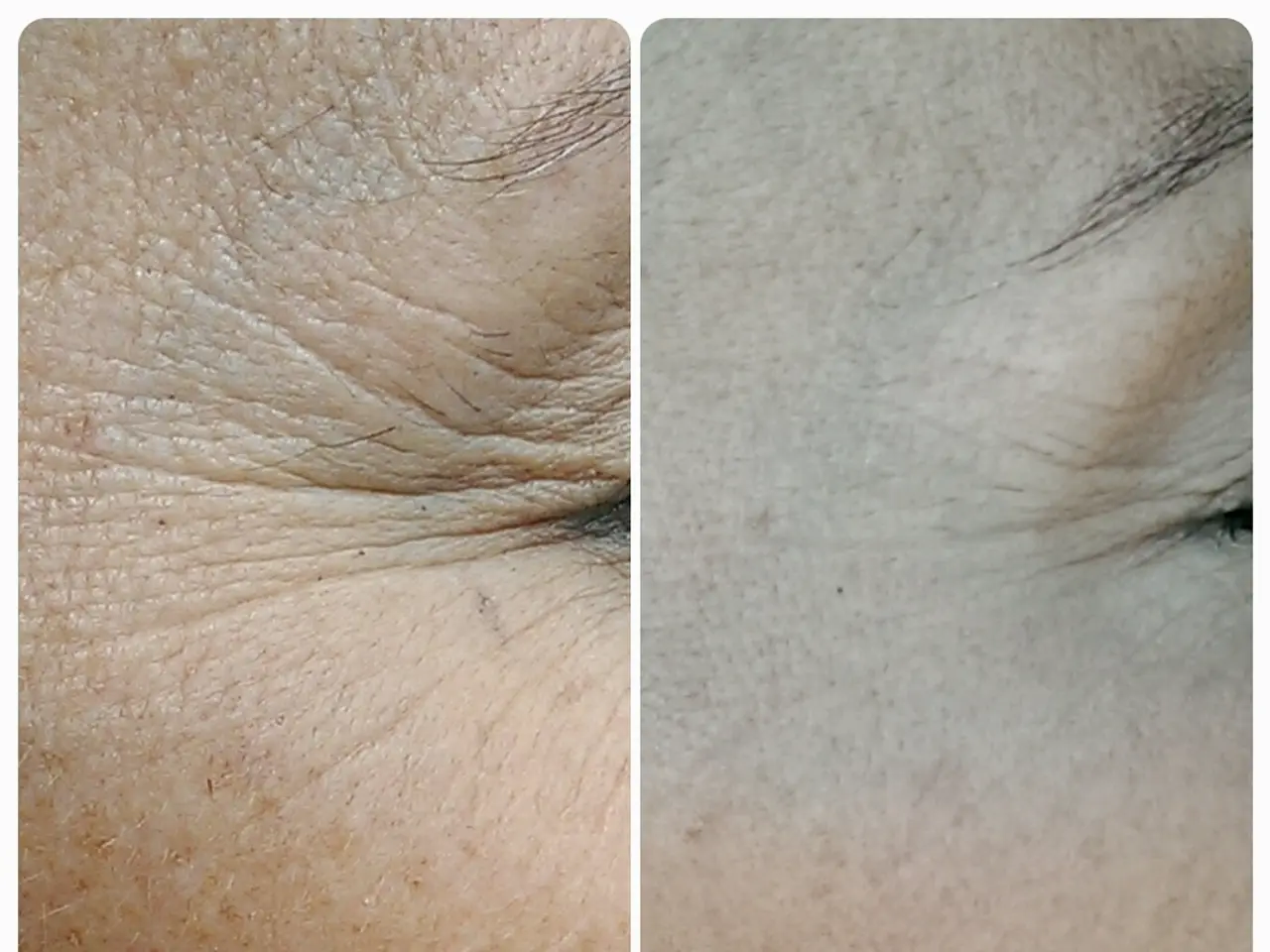Reinforcing Skin Barrier through Distinct Identification of NHEK Cells
In the intricate world of skin biology, Normal Human Epidermal Keratinocytes (NHEKs) play a pivotal role in maintaining the skin's natural defenses and hydration. These cells, originating from the deepest layer of the epidermis, the stratum basale, migrate towards the skin's outer layer, the stratum corneum, through a process called differentiation.
The importance of hydration for the longevity and overall health of the skin has been highlighted in a recent Mintel study. The differentiation of NHEKs is crucial for this process, as it ensures a fully differentiated, functional epidermis that acts as an effective barrier against infectious agents and minimizes moisture loss.
Differentiated keratinocytes form a layer of nucleus-free, flat, and highly keratinized squamous cells in the stratum corneum. This layer, created through a phenomenon called keratinization, is responsible for the skin's solid outer layer, which is essential for retaining moisture and maintaining proper skin hydration.
The benefits of NHEK differentiation extend beyond hydration. Differentiated keratinocytes are involved in wound healing, immune response, and inflammation control. They produce cytokines, growth factors, interleukins, and complement factors, all of which play roles in immune regulation and inflammation control. This is crucial for preventing infections and managing inflammatory conditions.
Moreover, the differentiation of NHEKs contributes to maintaining skin homeostasis, ensuring a fully differentiated, functional epidermis. This process involves cross-talk with other skin cells like fibroblasts, which helps in maintaining normal lipid composition and barrier function.
In the beauty industry, there is a growing demand for natural-origin beauty and personal care products. Actives like AquaxtremTM from Provital have been developed to stimulate NHEK differentiation and strengthen the stratum corneum cells, aligning with this consumer trend.
The demand for moisturizing products is not limited to women. In fact, the men's beauty sector is also seeing an increase in the use of moisturizers, with 27% of American men and 39% of British men using a moisturizer daily. This highlights the universal appeal of products that promote skin health and hydration.
In conclusion, the differentiation of NHEKs is vital for maintaining a healthy, functional skin barrier, supporting wound healing, managing inflammation, and preserving skin hydration. Understanding the role of these cells can help in the development of more effective skincare products that cater to the growing consumer demand for natural, hydrating solutions.
[1] Kaur, M., & Kaur, M. (2015). Human epidermal keratinocytes: biology, differentiation, and cancer. Journal of cellular biochemistry, 116(10), 1809-1820. [2] Fuchs, E., & Raghavan, D. (2002). The epidermis. Cold Spring Harbor perspectives in biology, 3(6), a255. [3] Schaefer, A. M., & Werner, S. M. (2006). The epidermis. In The skin: biology, physiology, and disease (pp. 19-34). Academic Press. [4] Maibach, H. I. (2005). The skin: an organ of perception. Elsevier/Academic Press.
The Mintel study emphasizes the importance of maintaining skin hydration, a crucial aspect of skin health and wellness, which depends on the differentiation of Normal Human Epidermal Keratinocytes (NHEKs). This process, responsible for the skin's solid outer layer that retains moisture, also contributes to wound healing, immune response, and inflammation control, making it vital for skincare formulations in the fitness-and-exercise realm, as well as in the beauty industry's growing demand for natural-origin products focusing on skin-care and moisturizing solutions.




